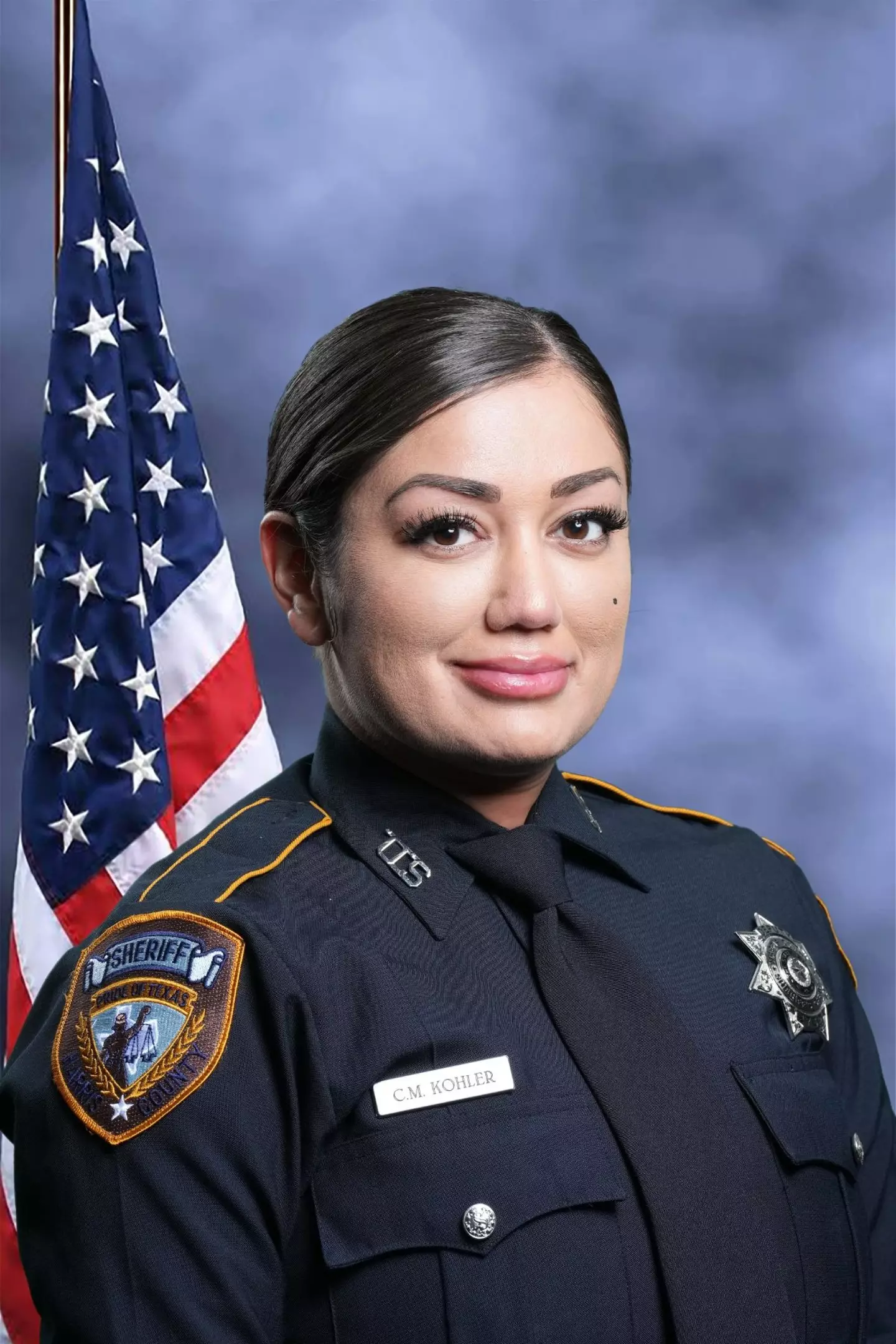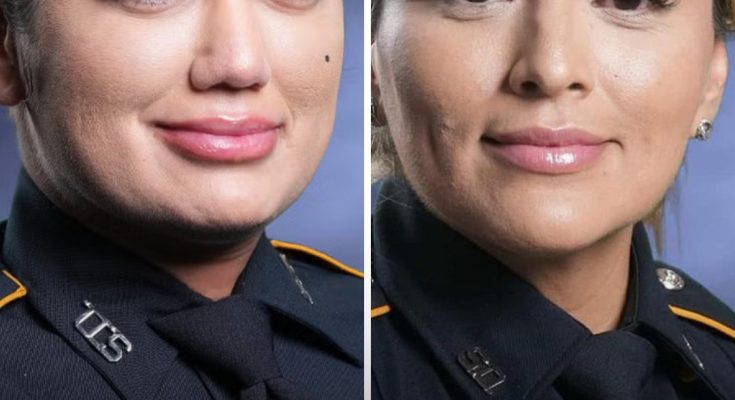Christina Kohler, Maria Vasquez, William Bozeman and Long Nguyen have all died within a matter of weeks
Warning: This article contains discussion of suicide which some readers may find distressing.
Four former and current Harris County Sheriff’s Office (HCSO) deputies have died by suicide in the last six weeks – sparking crucial conversations about mental health.
A 2023 report by the US Fire Administration said that between 2015 and 2017, first responders made up one percent of all suicides in the US, with 58 percent of those being law enforcement officers (LEOs).
Meanwhile, a paper obtained by ABC News in 2024 stated that a devastating 1,287 LEOs and correction officers had taken their lives between 2016 and 2022.
More than half (51 percent) of the officer deaths by suicide involved officers from local police departments, while 20 percent were from sheriff’s offices.
In the last month, four more LEOs have joined those devastating statistics.
Here’s everything we know about their deaths and how the Houston-based HSCO is delivering mental health aid to surviving officers.
HCSO Deputy Christina Kohler died a day after being reported missing

Christina Kohler joined the office in 2018 (Harris County Sheriff’s Office)
On March 13, a Houston Regional CLEAR Alert had been issued for 37-year-old HSCO veteran Christina Kohler.
The first responder, who joined the office in 2018, had last been seen on March 12, according to a post by the Texas Center for the Missing.
At the time, officers claimed Kohler posed a ‘credible threat to her own health and safety’.
However, it was later announced that the law enforcer had died the day she was reported missing, with Constable Mark Herman writing: “Her name, her life, absolutely deserves to be remembered for her commitment to our profession.”
Kohler was most recently assigned to the courts division working as a bailiff in the 182nd District Court, as per The Houston Chronicle.
HCSO Deputy Maria Vasquez’s death was announced last week
.jpg)
Maria Vasquez died within days of her colleague (Harris County Sheriff’s Office)
Within days of Kohler’s death, the Medical Examiner’s Office confirmed that HCSO Deputy Maria Vasquez, who left the department in December 2024, had also died by suicide.
The 42-year-old apparently died at her home in the 8600 block of Almeda Genoa Road, Houston.
Both Kohler and Vasquez’s lives were memorialized by an HSCO Facebook post, with the Office’s Community Engagement Division writing: “Heaven has gained two beautiful angels.
“May their memory be a blessing, inspiring strength and comfort to their friends, family and coworkers during this challenging time.”
Two more ex-deputies have taken their lives
Kohler and Vasquez aren’t the only deaths to rock the HSCO, with former deputy William Bozeman also being found under similar circumstances, according to ABC 13 Eyewitness News.
On February 26, it was reported that former HSCO debut Long Nguyen, 58, had also died by suicide, as per the medical examiner.
Experts call for struggling first responders to ‘reach out’
.jpg)
It’s understood William Bozeman was found dead in similar circumstances (Harris County Sheriff’s Office)
Director of the Trauma and Resilience Center at UTHealth Houston, Dr. Ron Acierno, has said the stigma around officers seeking treatment mental health treatment during both work and retirement needs to be subdued.
“Much like the veteran community and the active-duty community, the idea is to tough it out. Or whether it’s due to the fact that they just didn’t know the help was available, or didn’t think it could help,” he told Click 2 Houston.
He explained that the Trauma and Resilience Center offers Texan first responders mental health support.
“We do have effective treatments. They aren’t fun. They aren’t comfortable. They’re very action-oriented. . .The focus is on changing what you do to change how you feel.”
Meanwhile Dr. Thomas McNeese, the director of the Harris County Sheriff’s Office Behavioral Health Division, has acknowledged the significant emotional burden of the profession.
He said that the profession unfortunately ‘takes a toll on people’ and that over time, it can ‘change’ a person.
“Reaching out. Getting some help. Doing something to be able to not stay stuck is really important,” he continued.
What is the HSCO offering in terms of mental health aid?
.jpg)
Long Nguyen reportedly died on February 26 (Harris County Sheriff’s Office)
Following the deaths of its four past and present officers, the HSCO – the largest sheriff’s office in Texas – is offering ‘mental health and peer support services to Deputy Kohler’s colleagues as they grieve her tragic loss’.
“The Sheriff’s Office is grateful for the community’s prayers and support, and we offer our deepest sympathies to Deputy Kohler’s family,” they added.
HCSO Constable Sherman Eagleton has also asked that any ‘struggling’ first responders ‘reach out to someone’.
“You are needed and you matter, even when you feel your lowest,” he wrote on Facebook.
“Our brothers and sisters in blue, take care of each other. Don’t carry the burden alone, your family is here for you.”
Meanwhile, Harris County Deputies Organization President Jose Lopez has said that he and his fellow officers are currently aware of the seriousness of the situation.
McNeese said the suicides in recent weeks have placed a strain on the entire office, sparking conversations about how to improve the agency’s behavioral health division.
“Something like this has ripple effects you don’t realize for years,” he said, adding that he believed the division is ‘too small’.
However, he hoped the service can still play some part in ‘destigmatizing’ mental health.
“The hope is to destigmatize it by having us around,” he said. “They know you’re not there trying to take away their badge. In fact, we’re their advocate.”
